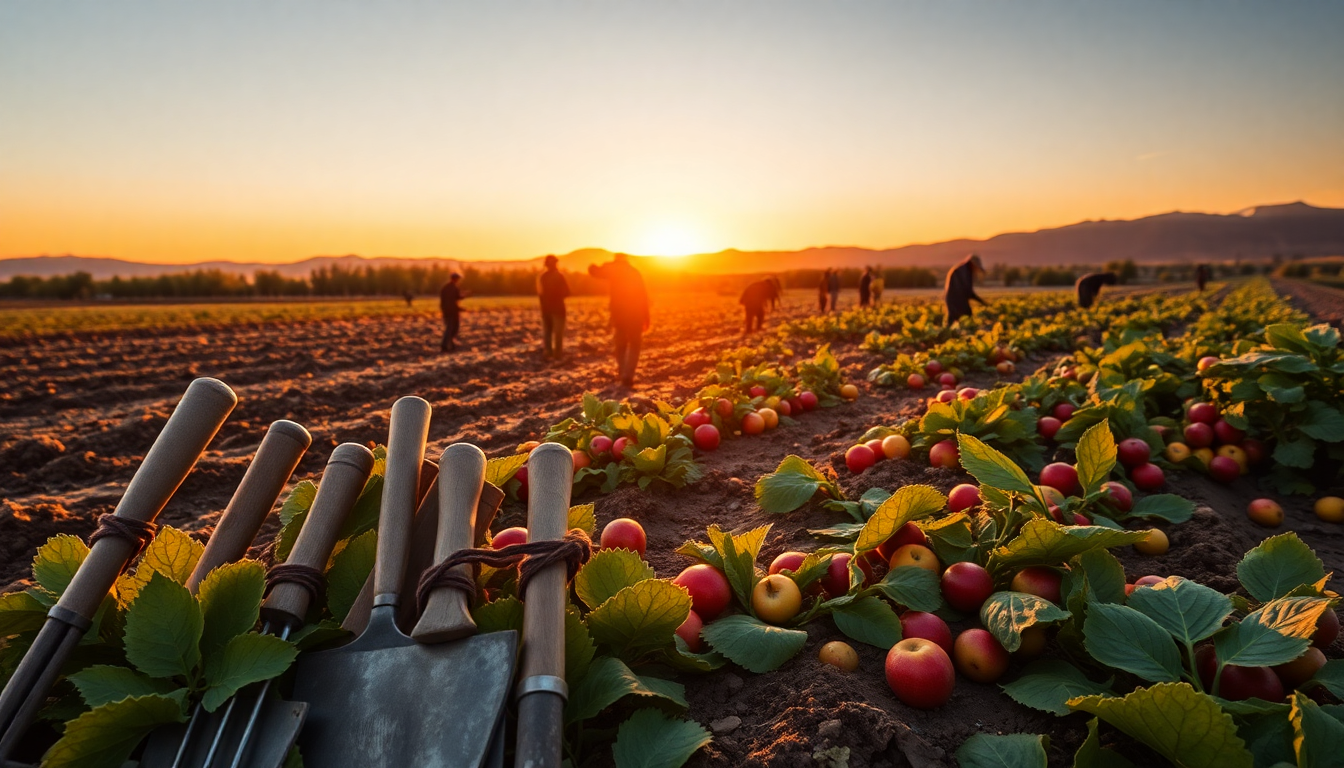Table of Contents
When we think about the intersection of immigration policy and agriculture, it’s easy to overlook how complex and intertwined these issues really are. Farmers are navigating a maze of regulations while trying to keep their workforce intact. Take Scott Heartquist, for example. He’s a farmer from Dudleyville, Arizona, and his story highlights both the challenges and opportunities that arise in this ever-evolving landscape. Heartquist is dedicated to supporting his Hispanic workforce and believes we need a more practical approach to immigration—one that truly recognizes the labor shortages plaguing the agricultural sector.
Understanding the Current Landscape
In recent years, the agricultural industry has faced daunting labor shortages, a problem worsened by strict immigration policies. Heartquist shares a troubling reality: the fear among Hispanic workers is very real, and it’s affecting their willingness to seek employment. Have you ever considered how much a community relies on skilled laborers? For many farms, these workers are essential, and their absence sends shockwaves through the entire operation.
Heartquist calls for a collaborative effort among business owners, workers, and immigration authorities to craft a system that respects U.S. laws while addressing the urgent labor demands of agriculture. He emphasizes that we can’t forget the humanitarian side of this discussion; many of these prospective workers are simply looking for a chance to contribute to society and better their lives.
But it’s not just about legal documentation. Heartquist also discusses the challenges farmers face, including issues like illegal trespassing and theft. Yet, he believes his strong ties with the local Hispanic community have helped him keep his business running smoothly. By prioritizing the hiring of legally documented workers and fostering an inclusive environment, he sets a positive example for how agricultural businesses can navigate these complex challenges.
A Family-Centric Approach to Farming
The Heartquist family farm started small, but it has flourished into a successful operation focused on sustainable practices. They’re committed to providing hormone-free and antibiotic-free meat products, creating not just a thriving business but also a close-knit community. It’s heartwarming to see family members and staff sharing meals and stories—these moments strengthen the bonds that are vital to their agricultural success.
Saúl Márquez, a butcher at the farm, underscores the positive working conditions and benefits available to immigrant workers. His own journey to obtaining permanent residency illustrates the potential for immigrants to thrive in the U.S. when given the right opportunities. He encourages his fellow immigrants to explore legal employment pathways, particularly in agriculture, where skilled labor is in high demand.
However, the current political climate creates a cloud of uncertainty, even affecting those with legal documentation. Márquez points out that the fear permeating the community can make it tough for workers to seek jobs and interact with local businesses. Isn’t it frustrating how external factors can complicate what should be straightforward opportunities?
Looking Ahead: Challenges and Opportunities
Heartquist articulates that the challenges in agriculture are not new, but recent policy changes have intensified them. The process of obtaining work visas has become increasingly convoluted, and the fear of deportation among undocumented workers adds an extra layer of difficulty for farmers who depend on a stable workforce. It’s a complex hiring landscape that many are struggling to navigate.
As we look ahead, Heartquist stresses the necessity for a robust immigration system that welcomes skilled laborers to bolster the agricultural economy. He dreams of a future where young people from areas like Mexico and Central America can receive training in food safety, ultimately elevating the quality of agricultural production. Can you imagine the positive impact this could have on both the economy and these communities?
In conclusion, it’s clear that the conversation around immigration in agriculture needs to evolve. We must address the pressing labor needs while considering the humanitarian implications of our policies. With advocates like Scott Heartquist leading the charge, it’s vital for policymakers to recognize the crucial role that immigrant labor plays in sustaining our agricultural sector. The future of farming might just depend on it.


